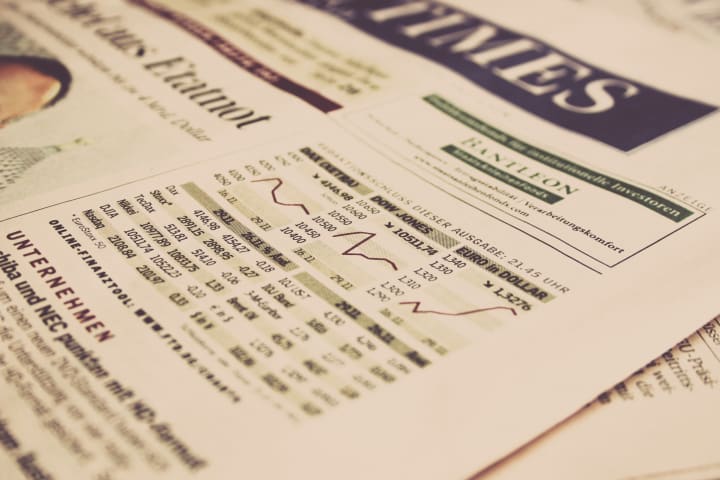How to Prepare for a Depression
The stock market is doing somersaults and may go into a downward spiral. Here's how to prepare for a depression as an investor—or regular human being.

The Great Depression was one of the worst times for Americans—rich or poor. When the stock market plunged, prices shot down and the job market got chopped up into tiny pieces. People ran out of money, lost their homes, and also watched as their portfolios evaporated into thin air.
Believe it or not, a depression could happen again. With the political turmoil happening in Washington, DC, the stock market's volatility is going through the roof. A depression is similar to a recession, but has longer lasting effects.
If you are worried about the tough times ahead, you're not alone. A depression is the worst case scenario and it's very possible. Here's how to prepare for a depression, if you're worried about stuff hitting the fan.
Cut out any and all luxuries you can—and put that money towards savings.

If you want to know how to prepare for a depression, take a cue from the way you would prepare for a recession. The first thing that you should do is beef up your savings in case of a job loss.
This exercise may seem extreme, but it's really not. This will help you live within your means, while also making it possible to stockpile money for the upcoming depression.
During a depression, stocks plummet and cash becomes king. The more savings you have, the better off you'll be in the event of a job loss.
Get a side gig, ASAP.
Everyone should have at least one or two extra ways to make money. It's just a smart move! A side gig is a great way to pad your savings account when the going's good and also give yourself a way to make ends meet if you lose your main source of income.
The cool thing about side gigs is that they can be anything you want them to be. It can be a lucrative hobby, a little add-on to your daily shopping, or just carrying out favors in your neighborhood. As long as your side gig offers money, it's a good move.
Look towards fixed income investments.
Passive income can be the thing that saves you during a depression—but usually, it's not from the stock market. A better route for most investors is to beef up fixed income investments like government bonds, real estate, dividend-rich stocks, and royalties.
Go for steady options. It's possible that riskier things like cryptocurrency can help the global economy, but you don't necessarily want to go with something so unstable for your personal economy.
To prepare for a depression, you have to try to find as many potential ways to steady your income flow as possible. You can't always rely on your job during these times.
Cultivate skills that are recession-proof.

Depressions and recessions mean that layoffs and outsourcing will happen all the time. If you work in an office or a factory, your job probably isn't safe. Those jobs are at the highest risk of being outsourced.
If you aren't working a trade, you might want to rethink it—especially if you're an average person. People like plumbers, hairdressers, chefs, and electricians tend to fare very well during tougher times.
Whenever such an event is on the horizon, stock market gurus prepare for a recession. It's time to take a page out of their books and prepare for whatever comes at us, whether it's a recession or a depression.
Avoid debt, and pay it down if you have it.
Most financial experts agree. The best way to prepare for a depression is to pay down debt, including your home mortgage. The more debt you have, the more your bottom line will suffer when you have to tighten your belt.
Interest rates on credit cards, loans, and mortgages rise when a depression's afoot. By paying up sooner rather than later, you'll avoid defaulting on loans or feeling financial pressure while others struggle to stay afloat.
Stock up on medications, dry goods, and other necessities.
In some severe situations, the price of food may end up becoming unattainable for some groups of people. That's why hitting the grocery store and keeping a healthy stockpile of dry goods is a good idea if you can afford it.
To prepare for a depression of massive scale, hit up your grocery store and stockpile medications that could skyrocket in price. Even if it's something like keeping extra toilet paper, freezing that extra loaf of bread, or getting canned goods lined up, it can make a difference.
Consider farming it up, if you can.

Some people are concerned about a total economic collapse from the next depression. If you're in this school of thought, then you may want to buy some land and start a vegetable garden.
The less you have to spend in order to get your food and shelter, the better off you'll be. Obviously, this means you may need to learn some new skills and get your hands dirty. However, it will be way easier to stay afloat.
Widen your portfolio diversity.
Though depressions do carry an overall similar pattern, each depression will be a bit different. That means that you can't always figure out what will be the best investment possible during these times.
To help reduce the pain your portfolio feels when the chips are down, it's a good idea to diversify your stocks. This includes adding different companies, buying up gold, getting some REITS, and even looking into government bonds.
Though you can't tell what will work well in your favor during a depression, high-risk stocks and luxury stock are a bad choice. After all, they don't usually perform well when people don't have much to spend!
Invest in "vice stocks."
During a depression, people tend to want to escape from their problems. Though it can cost a bunch, people tend to use alcohol, gambling, and porn to escape their stressors—even during a depression.
Stocks affiliated with vices fair well during a depression, which makes them a surprisingly safe category of stocks to buy.
Invest in other countries.

In many cases, a depression will affect one country more than others around it. If a depression hits the United States economy, then other countries will have their currency value rise in comparison to the dollar.
For the US, this means that imports will become pricier—if not outright unaffordable. For those who invest in other currencies, this means you may be able to profit.
Should you think the depression will be a "mostly American" thing, you should prepare for a depression by getting into Forex.
It's important to prepare; while anything as severe as the Great Depression is hard to imagine, being prepared never hurts.
We've all heard stories about the Great Depression. Most of them are bad. There are a few gems, like the tale of the heroic horseback librarians of the Great Depression, but most of the stories are of hardships. To protect yourself, prepare yourself for the worst and hope for the best. It's important to have an emergency fund for any crisis you might face.
About the Creator
Skunk Uzeki
Skunk Uzeki is an androgynous pothead and a hard partier. When they aren't drinking and causing trouble, they're writing articles about the fun times they have.






Comments
There are no comments for this story
Be the first to respond and start the conversation.